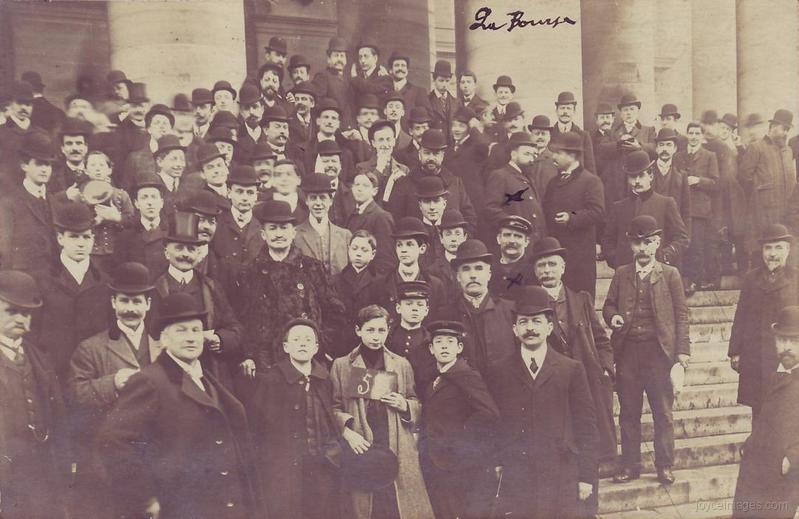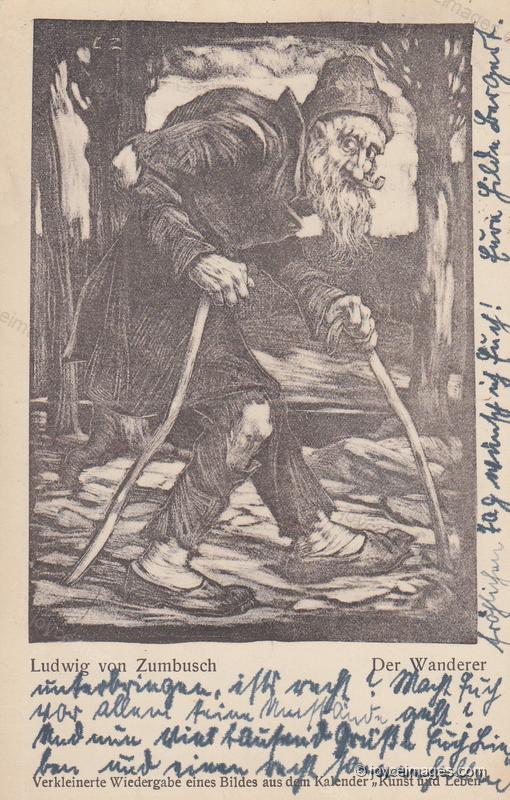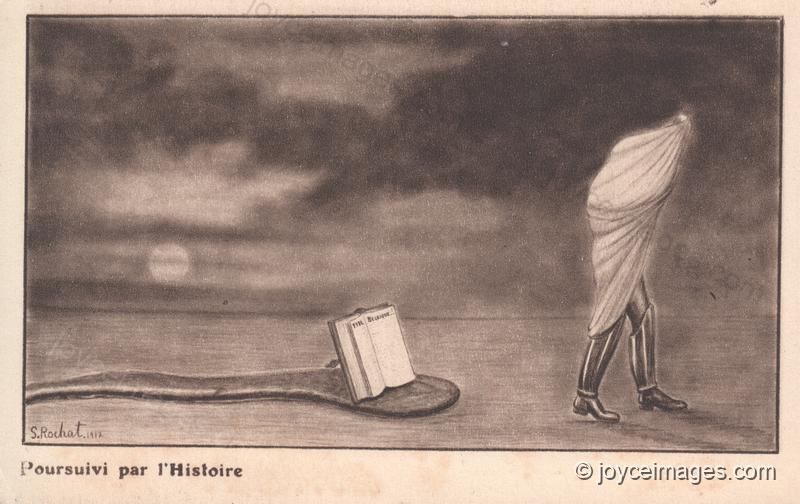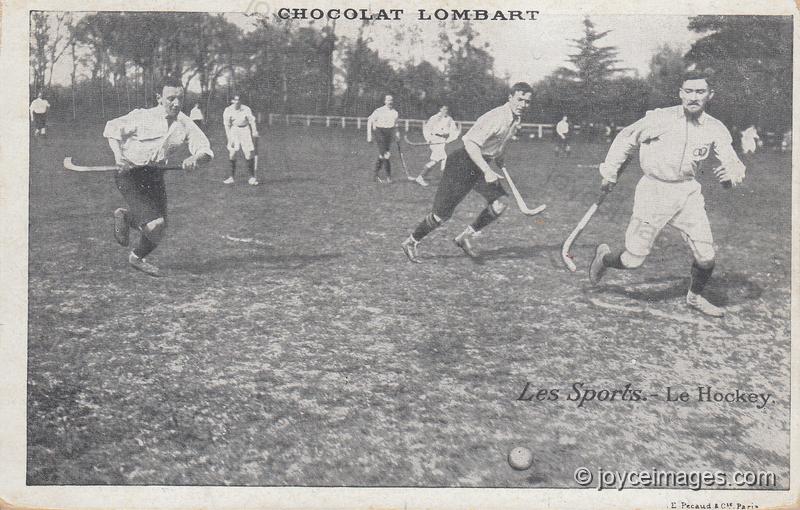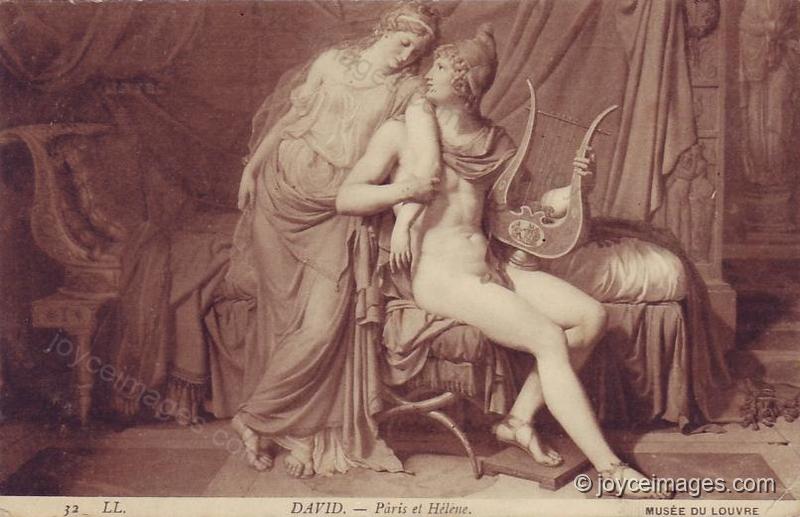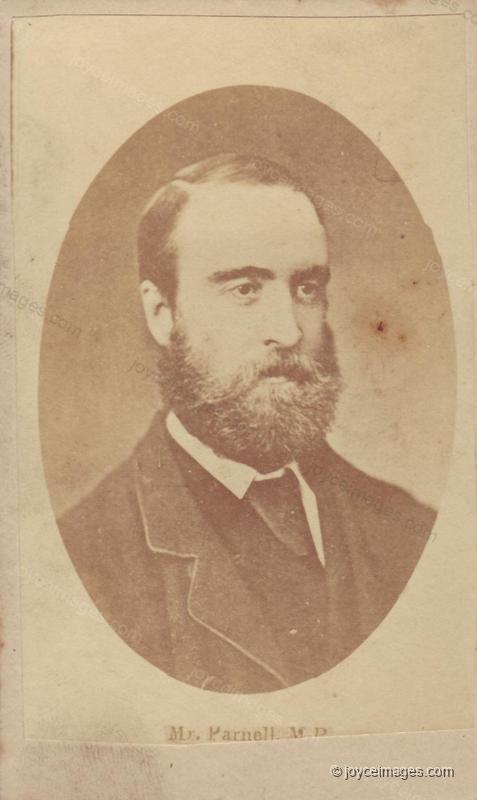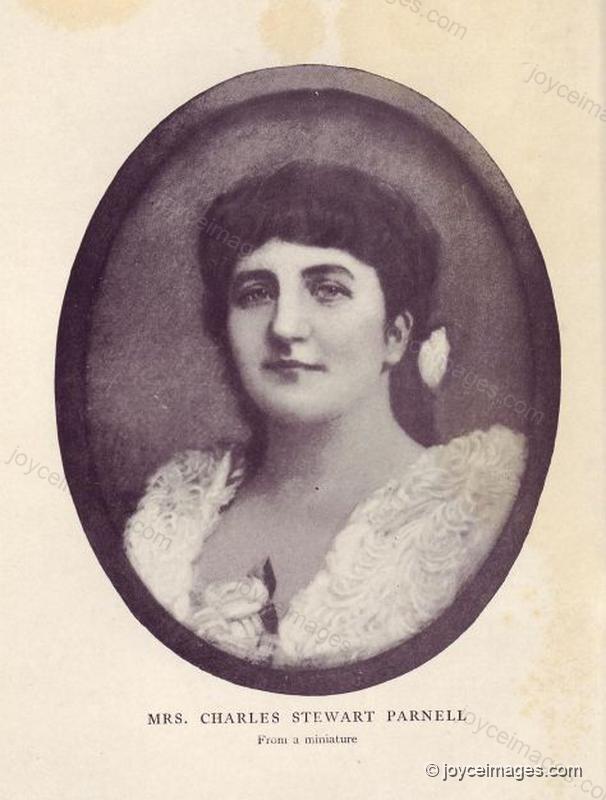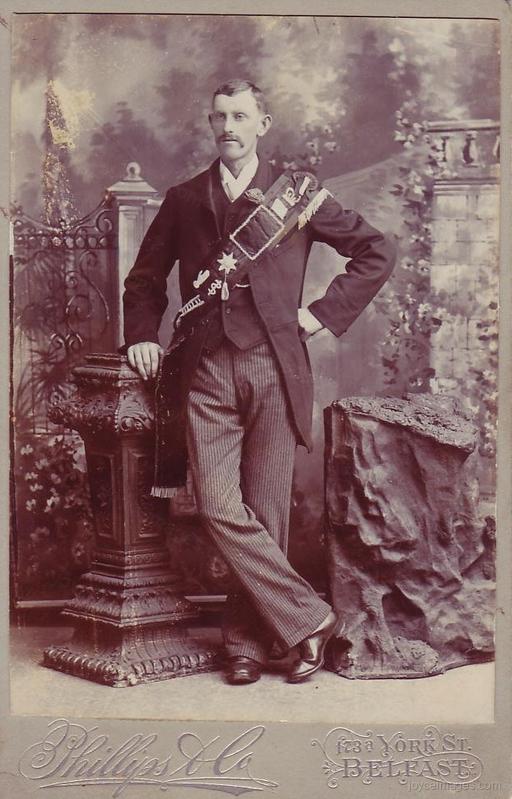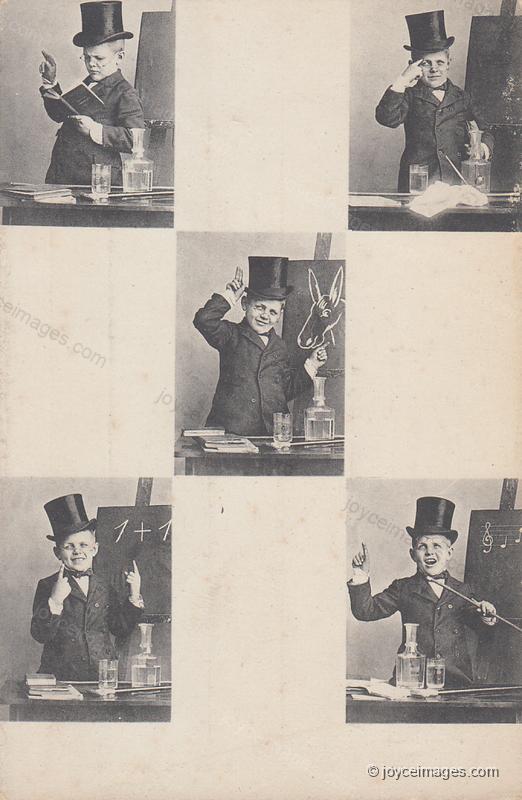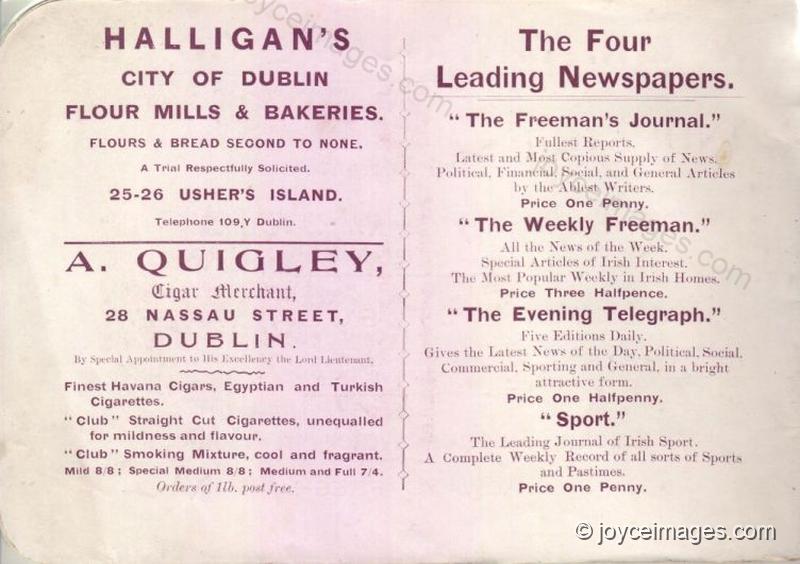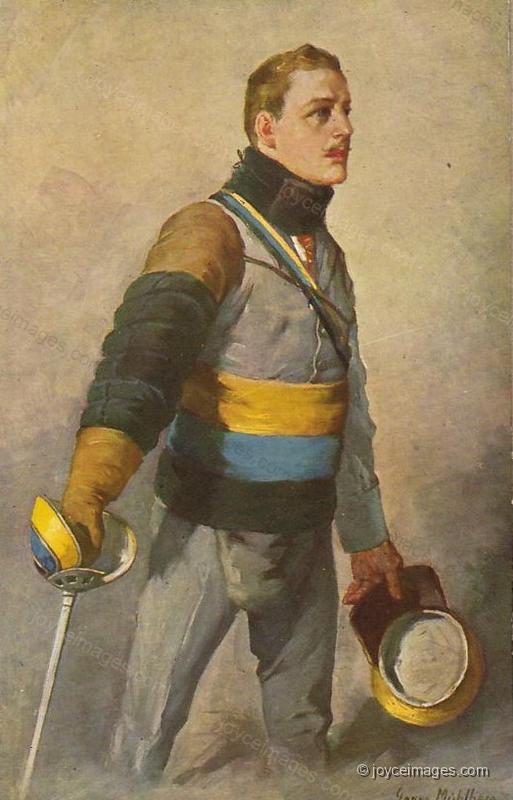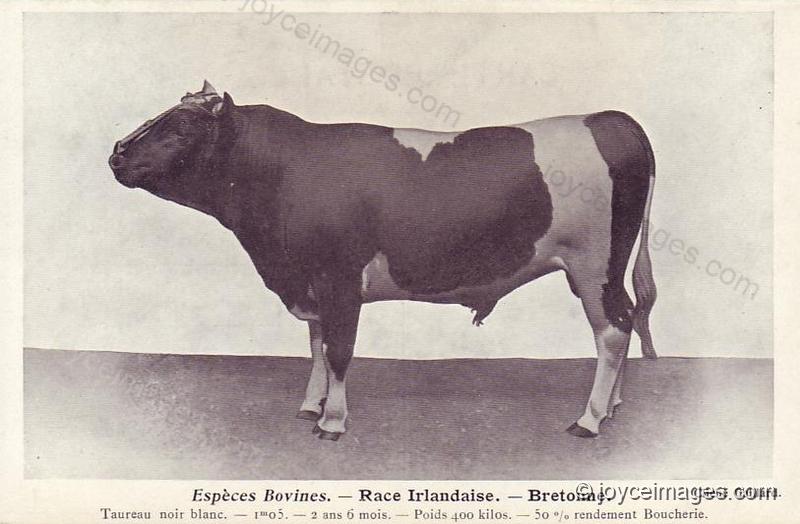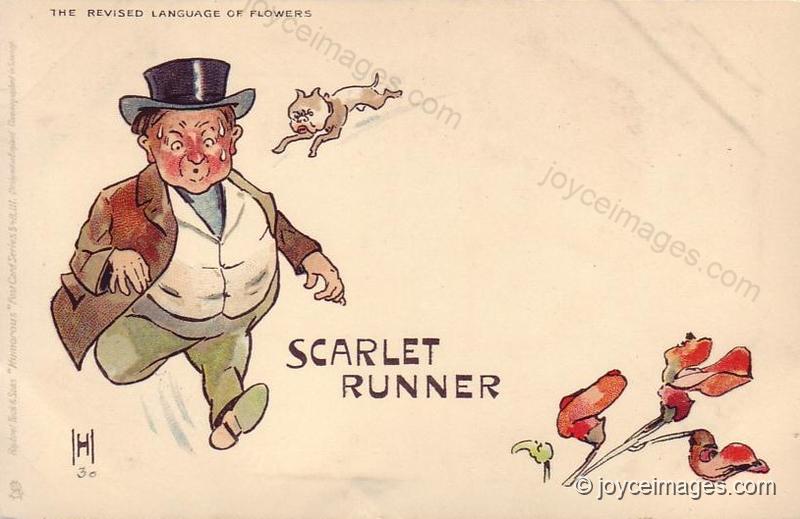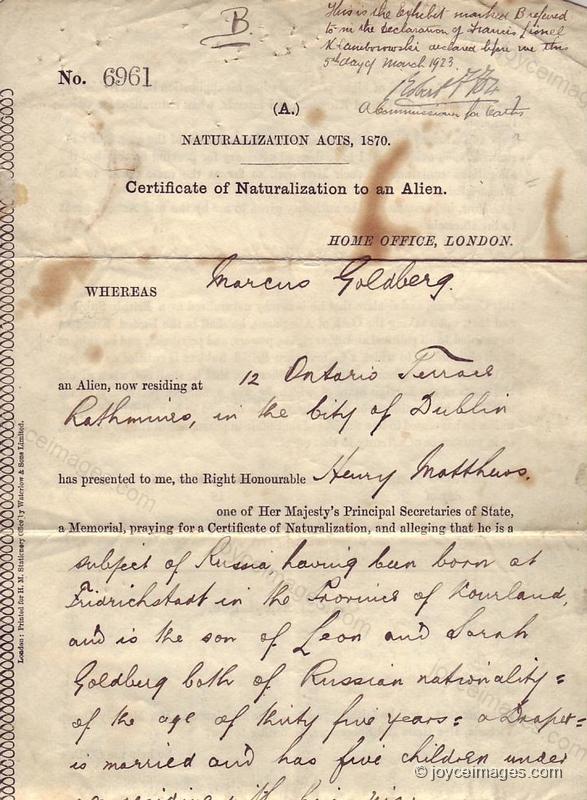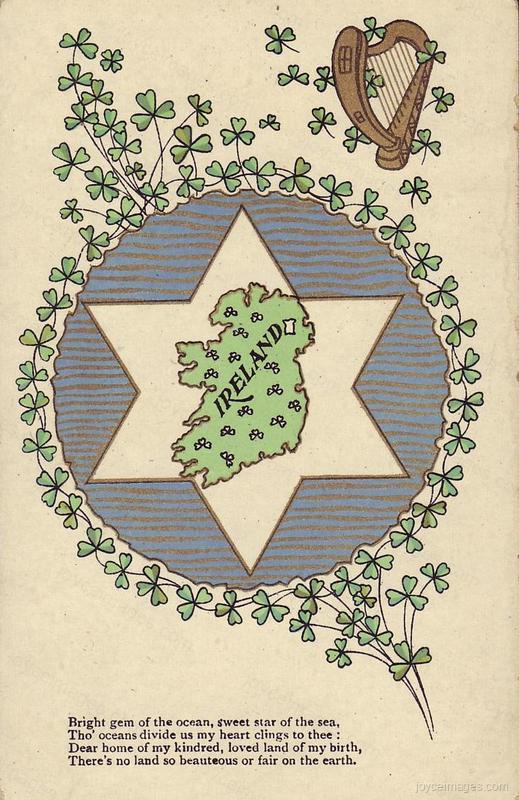"Gabbles of geese. They swarmed loud, uncouth, about the temple, their heads thickplotting under maladroit silk hats. Not theirs: these clothes, this speech, these gestures. Their full slow eyes belied the words, the gestures eager and unoffending, but knew the rancours massed about them and knew their zeal was vain." (U2.365)
". Vain patience to heap and hoard. Time surely would scatter all. A hoard heaped by the roadside: plundered and passing on. Their eyes knew their years of wandering and, patient, knew the dishonours of their flesh.
— Who has not? Stephen said.
— What do you mean? Mr Deasy asked.
He came forward a pace and stood by the table. His underjaw fell sideways open uncertainly. Is this old wisdom? He waits to hear from me." (U2.369)
— Who has not? Stephen said.
— What do you mean? Mr Deasy asked.
He came forward a pace and stood by the table. His underjaw fell sideways open uncertainly. Is this old wisdom? He waits to hear from me." (U2.369)
"From the playfield the boys raised a shout. A whirring whistle: goal. What if that nightmare gave you a back kick?
— The ways of the Creator are not our ways, Mr Deasy said. All human history moves towards one great goal, the manifestation of God.
Stephen jerked his thumb towards the window, saying:
— That is God.
Hooray! Ay! Whrrwhee!
— What? Mr Deasy asked.
— A shout in the street, Stephen answered, shrugging his shoulders." (U2.378)
— The ways of the Creator are not our ways, Mr Deasy said. All human history moves towards one great goal, the manifestation of God.
Stephen jerked his thumb towards the window, saying:
— That is God.
Hooray! Ay! Whrrwhee!
— What? Mr Deasy asked.
— A shout in the street, Stephen answered, shrugging his shoulders." (U2.378)
"Mr Deasy looked down and held for awhile the wings of his nose tweaked between his fingers. Looking up again he set them free.
- I am happier than you are, he said. We have committed many errors and many sins. A woman brought sin into the world. For a woman who was no better than she should be, Helen, the runaway wife of Menelaus, ten years the Greeks made war on Troy. A faithless wife first brought the strangers to our shore here, MacMurrough's wife and her leman, O'Rourke, prince of Breffni. " (U2.387)
- I am happier than you are, he said. We have committed many errors and many sins. A woman brought sin into the world. For a woman who was no better than she should be, Helen, the runaway wife of Menelaus, ten years the Greeks made war on Troy. A faithless wife first brought the strangers to our shore here, MacMurrough's wife and her leman, O'Rourke, prince of Breffni. " (U2.387)
"A woman too brought Parnell low. Many errors, many failures but not the one sin." (U2.394)
Charles Stewart Parnell (1846 - 1891) was an Irish political leader, M.P. and later President of the Irish National Land League. In the early 1880s, Parnell became the accepted leader of the Irish nationalist movement, quickly gaining political momentum as Ireland's 'uncrowned king.' His political career came to a screeching halt (1889) when it was 'revealed' (though it had been widely known in political circles) that Parnell was having an illicit long term relationship with a married woman, Katharine O'Shea. Her husband, Captain William Henry O'Shea, was a Catholic Nationalist and M.P. for Galway. O'Shea filed for divorce, citing Parnell as co-respondent. The scandal terminated Parnell's career, divided Irish public opinion, and likely delayed the granting of Home Rule by Great Britain to Ireland.
Charles Stewart Parnell (1846 - 1891) was an Irish political leader, M.P. and later President of the Irish National Land League. In the early 1880s, Parnell became the accepted leader of the Irish nationalist movement, quickly gaining political momentum as Ireland's 'uncrowned king.' His political career came to a screeching halt (1889) when it was 'revealed' (though it had been widely known in political circles) that Parnell was having an illicit long term relationship with a married woman, Katharine O'Shea. Her husband, Captain William Henry O'Shea, was a Catholic Nationalist and M.P. for Galway. O'Shea filed for divorce, citing Parnell as co-respondent. The scandal terminated Parnell's career, divided Irish public opinion, and likely delayed the granting of Home Rule by Great Britain to Ireland.
Katharine O'Shea (1845 - 1921), born Katharine Wood, was English. She was known as 'Katie' to her friends, and 'Kitty' to her detractors. She married Captain O'Shea in 1867, but the marriage did not go well, and by 1875 they were effectively living apart. She met Parnell in 1880 and they started a steady relationship; 3 of Katharine's children (Clare, Katie, and a 3rd child who died neonatally) were Parnell's. O'Shea knew about the affair, having challenged Parnell to a duel (1881) and forbidden Katie to see him (1886). His reasons for filing for divorce (1889) are unclear, possibly political or financial. Parnell and Katharine married shortly after her divorce. By then Parnell's political life was essentially over. He died at age 45 of heart problems (1891). She lived the rest of her life in relative obscurity, and is buried in Sussex, England. This picture is from the biography 'Charles Stewart Parnell: His Love Story and Political Life' that she authored (1914) under the name 'Katharine O'Shea (Mrs Charles Stewart Parnell).'
"I am a struggler now at the end of my days. But I will fight for the right till the end.
For Ulster will fight
And Ulster will be right.
Stephen raised the sheets in his hand.
— Well, sir, he began..." (U2.395)
When Gladstone introduced the Home Rule Bill in 1886, his Conservative opponents formed a political alliance with the Ulster Protestants which was to last almost a century. "The Orange card was the one to play", wrote a leading Conservative, Lord Randolph Churchill, who also coined the watchword "Ulster will fight, and Ulster will be right." The bill was greeted by severe rioting in Belfast, the worst the city had seen. This photo shows a proud Ulsterman.
For Ulster will fight
And Ulster will be right.
Stephen raised the sheets in his hand.
— Well, sir, he began..." (U2.395)
When Gladstone introduced the Home Rule Bill in 1886, his Conservative opponents formed a political alliance with the Ulster Protestants which was to last almost a century. "The Orange card was the one to play", wrote a leading Conservative, Lord Randolph Churchill, who also coined the watchword "Ulster will fight, and Ulster will be right." The bill was greeted by severe rioting in Belfast, the worst the city had seen. This photo shows a proud Ulsterman.
"—I foresee, Mr Deasy said, that you will not remain here very long at this work. You were not born to be a teacher, I think. Perhaps I am wrong.
—A learner rather, Stephen said.
And here what will you learn more?
Mr Deasy shook his head.
—Who knows? he said. To learn one must be humble. But life is the great teacher.
Stephen rustled the sheets again.
—As regards these, he began .....
—Yes, Mr Deasy said. You have two copies there. If you can have them published at once." (U2.401)
—A learner rather, Stephen said.
And here what will you learn more?
Mr Deasy shook his head.
—Who knows? he said. To learn one must be humble. But life is the great teacher.
Stephen rustled the sheets again.
—As regards these, he began .....
—Yes, Mr Deasy said. You have two copies there. If you can have them published at once." (U2.401)
"Telegraph. Irish Homestead.
— I will try, Stephen said, and let you know tomorrow. I know two editors slightly.
— That will do, Mr Deasy said briskly. I wrote last night to Mr Field, M. P. There is a meeting of the cattletraders' association today at the City Arms hotel. I asked him to lay my letter before the meeting. You see if you can get it into your two papers. What are they?
— The Evening Telegraph .....
— That will do, Mr Deasy said. There is no time to lose. Now I have to answer that letter from my cousin.
— Good morning, sir, Stephen said, putting the sheets in his pocket. Thank you.
— Not at all, Mr Deasy said as he searched the papers on his desk." (U2.277)
— I will try, Stephen said, and let you know tomorrow. I know two editors slightly.
— That will do, Mr Deasy said briskly. I wrote last night to Mr Field, M. P. There is a meeting of the cattletraders' association today at the City Arms hotel. I asked him to lay my letter before the meeting. You see if you can get it into your two papers. What are they?
— The Evening Telegraph .....
— That will do, Mr Deasy said. There is no time to lose. Now I have to answer that letter from my cousin.
— Good morning, sir, Stephen said, putting the sheets in his pocket. Thank you.
— Not at all, Mr Deasy said as he searched the papers on his desk." (U2.277)
"I like to break a lance with you, old as I am.
- Good morning, sir, Stephen said again, bowing to his bent back.
He went out by the open porch and down the gravel path under the trees, hearing the cries of voices and crack of sticks from the playfield. The lions couchant on the pillars as he passed out through the gate; toothless terrors. Still I will help him in his fight." (U2.424)
- Good morning, sir, Stephen said again, bowing to his bent back.
He went out by the open porch and down the gravel path under the trees, hearing the cries of voices and crack of sticks from the playfield. The lions couchant on the pillars as he passed out through the gate; toothless terrors. Still I will help him in his fight." (U2.424)
"- Mr Dedalus!
Running after me. No more letters, I hope.
- Just one moment.
- Yes, sir, Stephen said, turning back at the gate.
Mr Deasy halted, breathing hard and swallowing his breath." (U2.432)
Running after me. No more letters, I hope.
- Just one moment.
- Yes, sir, Stephen said, turning back at the gate.
Mr Deasy halted, breathing hard and swallowing his breath." (U2.432)
"- I just wanted to say, he said. Ireland, they say, has the honour of being the only country which never persecuted the jews. Do you know that? No. And do you know why?
He frowned sternly on the bright air.
- Why, sir? Stephen asked, beginning to smile.
- Because she never let them in, Mr Deasy said solemnly." (U2.437)
He frowned sternly on the bright air.
- Why, sir? Stephen asked, beginning to smile.
- Because she never let them in, Mr Deasy said solemnly." (U2.437)
"A coughball of laughter leaped from his throat dragging after it a rattling chain of phlegm. He turned back quickly, coughing, laughing, his lifted arms waving to the air.
- She never let them in, he cried again through his laughter as he stamped on gaitered feet over the gravel of the path. That's why.
On his wise shoulders through the checkerwork of leaves the sun flung spangles, dancing coins." (U2.443)
- She never let them in, he cried again through his laughter as he stamped on gaitered feet over the gravel of the path. That's why.
On his wise shoulders through the checkerwork of leaves the sun flung spangles, dancing coins." (U2.443)
